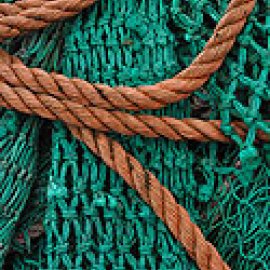RESCUE, part 24: Ocean Finance Reform, Step by Step
-
English
-
ListenPause
[intro music]
Welcome to World Ocean Radio…
I’m Peter Neill, Director of the World Ocean Observatory,
In the ongoing World Ocean Radio series on RESCUE, we have made bold to outline a series of changes and improvements that put forward a new set of principles, operating strategies, and financial instruments that combine to create a new, sustainable, ocean economy. It might serve at this point to list some of the most critical ones here as a checklist for step-by-step actions toward future governance, regulation, and investments in the ocean world.
A first step requires recognition and removal of outdated policies and systems such as:
• Remove subsidies, incentives, tax preferences, and relief for oil and gas exploration and other natural resource extraction;
• Remove subsidies for fishing boat fuel and ship construction;
• Increase monitoring of fishing areas, inspect catch, enforce quotas, remove illegal gear, and adhere to regulatory requirements already in place;
• Respect national laws and prosecute evasion of taxes through exemptions, serially flagged vessel registration, interlocking directorates, and off-shore corporate registrations;
• Assure the survival of artisanal fishing and coastal communities, supervise and expand existing marine protected areas, and investigate and prosecute the documented violations of fishers’ rights.A second step requires application of new methods and regulatory frameworks such as:
• Define, enact, and apply new treaty-agreed practices through vessel identification and tracking by GPS and satellite, increase number of independent observers aboard to oversee catch, by-catch, and conformity to environmental and social standards;
• Create a standardized traceability system as starting point to physically track fish from catch through dockside sale, through wholesalers and distributors, to restaurants and individual consumers, to create a trustworthy sustainability chain for marine products;
• Maintain independent agencies to monitor the product flow, identify violations, and communicate unsustainable practices and practitioners to the public;
• Coordinate regulations and enforcement by species or region, adapting policy applications to specific conditions on the water.A third step requires recognition of systemic failure to monetize environmental resources as natural assets and to include that value in the accounting, permitting, and investment analysis of practices and projects based on the exploitation of Nature, such as:
• Expand the nascent initiative for development and application of ecosystem service accounting by demonstrations, exemplification, incorporation in project requirements and review;
• Enable such practices through funding agencies to include the United Nations, the World Bank, the Global Environment Facility, the other development banks, sovereign funds, regional collaborations, and other international public and private investment institutions;
• Pressure governments that have made pledges toward climate change funding to own up, pay up, and show up;
• End all financing for fossil fuel projects worldwide and redirect to alternatives at scale;
• Approve no deep ocean mining;
• Use World Bank fair credit lending to transition the nations of the global south to clean energy and net zero economies;
• Create and apply a Fishers’ Bill of Rights to guarantee equity and justice in the fishing industry worldwide.A fourth step requires that the international conversation move beyond the conventional processes of the past toward new principles and perspectives, such as:
• Expand support of ocean and climate science research;
• Set standards and invest in responsible aquaculture to supplement sustainable fishing;
• Accelerate further development and implementation of ocean policy, and law, through proposed treaty ratifications and a substantial updated revision of the United Nations Convention on the Law of the Sea (UNCLOS);
• Innovate and apply Ocean Literacy education at all levels worldwide;
• Amplify ocean communication to engage the public and generate political will.These are not all the steps to be taken; there are more—and all of them are difficult in the face of inertia, complacency, the power of vested capital, and resistance to change. But every day, the evidence of crisis on and in the ocean becomes more real and affecting. Every day, from this day, it is essential that we move forward with focus, commitment, and determination, down the path of RESCUE:
R for renewal; E for environment; S for society; C for collaboration; U for understanding; and E for engagement.
We will discuss these issues, and more, in future editions of World Ocean Radio.
WORLD OCEAN RADIO IS DISTRIBUTED BY THE PUBLIC RADIO EXCHANGE AND THE PACIFICA NETWORK FOR USE BY COLLEGE AND COMMUNITY RADIO STATIONS WORLDWIDE. FIND US WHEREVER YOU LISTEN TO PODCASTS AND AT WORLD OCEAN OBSERVATORY DOT ORG.
[outro music]This week we continue the multi-part RESCUE series by listing some of the most critical changes and improvements required to create a new, sustainable ocean economy--in essence a checklist for step-by-step actions toward future governance, regulation and investment in the world ocean.
RESCUE as an acronym offers a plan for specific action and public participation: Renewal, Environment, Society, Collaboration, Understanding, and Engagement.
About World Ocean Radio
5-minute weekly insights dive into ocean science, advocacy and education hosted by Peter Neill, lifelong ocean advocate and maritime expert. Episodes offer perspectives on global ocean issues and viable solutions, and celebrate exemplary projects. Available for syndicated use at no cost by college and community radio stations worldwide.
Image
Kristin Snippe on Unsplash
- Login to post comments



